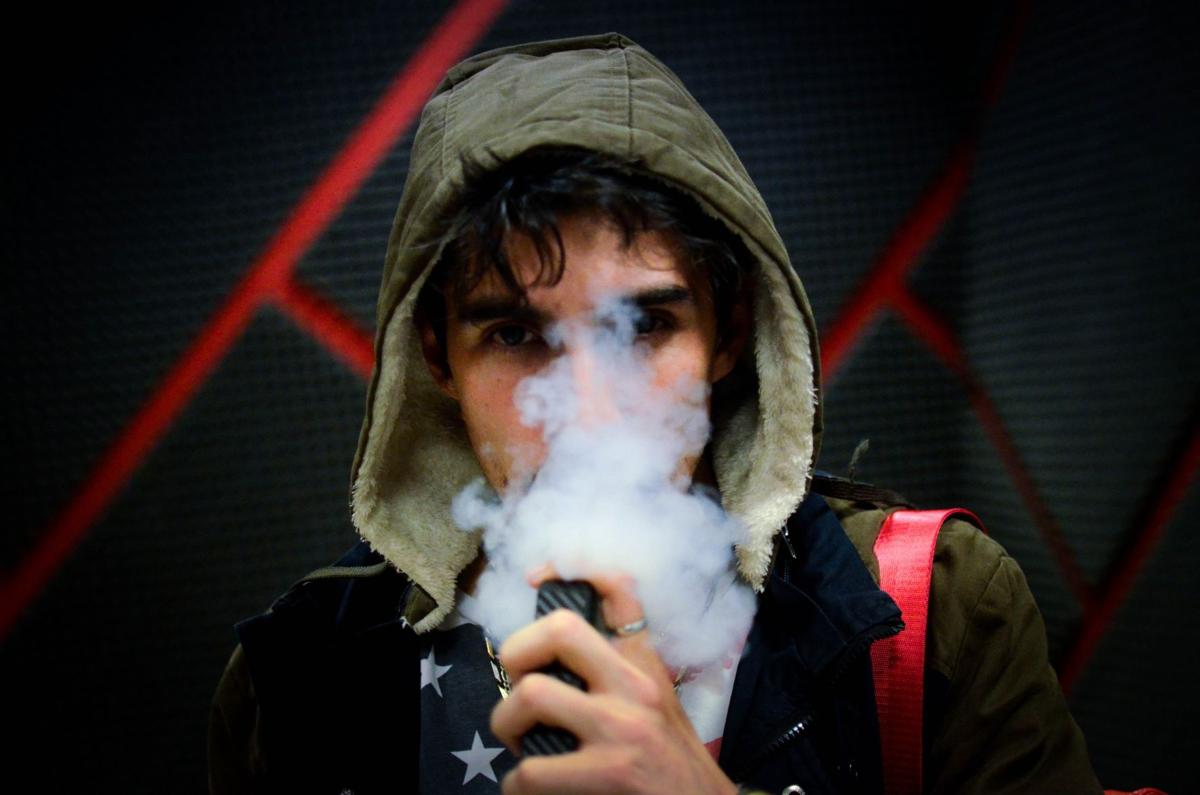
Taking the taste out of your mouth
To the Editor,
Regarding the Trump Administration’s decision to ban vape flavorings: The percentage of 12th graders who vape skyrocketed from 28 percent in 2017 to around 37 percent within the last year, and recent reports of severe lung illnesses have been linked to the use of these e-cigarettes.
Since the Trump administration’s push to ban flavored e-cigarettes in the face of major illnesses and deaths, we’re already learning that some chemicals in vape flavor products, like pulegone, are carcinogens that were banned as food additives by the FDA just last year. Greater regulations on vape pod ingredients are long overdue.
Current research has not yet identified a definite cause for this pulmonary illness, but preliminary studies have suggested a possible link with some of the compounds found in the flavored e-cigarette pods. Generally, the lungs react to inhaled chemicals by recognizing them as foreign to the body and increasing inflammation, which ultimately destroys the lung tissue in the process and can lead to diseases like pneumonia or emphysema.
There is no reason to believe the body would react any differently to chemicals in e-cigarettes. We support the Trump Administration’s decision to increase the Food & Drug Administration’s (FDA) oversight of e-cigarette flavorings. With vaping’s appeal among our youth, continued research into the ingredients, manufacturing and sale of these devices should be everybody’s priority. We urge the FDA and local legislators to halt the sale of flavored cartridges and implement greater safety precautions for flavoring ingredients immediately.
—Troy Anlage, Ishani Khatiwala, Rostyslav Bukachevskyy, Swaksha Rachuri and Zane Kaleem | MS2, Drexel University College of Medicine
Gays aren’t people too, apparently
Dear Editor,
I read your [Sept. 26 editorial] “The Bowie Book.” You should listen to your friend and realize the countless ways you’re setting your son, who you claim to love so much, for failure. Whether you choose to believe it or not, homosexuality is a sin before God. It’s a part of our culture, fine, whatever. We have no choice but to live with that, but that doesn’t mean it’s not immoral. Reading books to your child about a man created as man who “explored his sexuality” questions not only your parenting but your own feelings on gay culture. I invite you to read Leviticus 18:22 and then read it again, and then think about what you’re telling your child.
— Martin | South Philadelphia
Hahnemann Hospital is only the beginning
Dear Editor,
I work at a health center in North Philadelphia. Many of our patients struggle with physical and mental illnesses. We hear a lot about the importance of diet, exercise and medication compliance.
But what good is any of that if your hospital is transformed into a luxury hotel or condo? I have watched Wall Street companies and private equity firms shut down hospitals like Hahnemann and interfere with our healthcare across Pennsylvania.
Enough is enough.
I am a member of Put People First! PA (PPF), a grassroots human rights organization, and we are fighting back against Wall St.’s agenda. Seniors living in Manor Care nursing homes across the state were being neglected and mistreated in the understaffed, poorly regulated private facilities. In Pittsburgh, a PPF member’s mother was neglected and ultimately died.
We took action to shine a light on these conditions. In Lancaster, mega “non-profit” UPMC uses Wall Street’s playbook. They purchased, and quickly shut down, the historic St. Joseph’s hospital in Lancaster city. Real estate players are working to turn the site into luxury housing. Sound familiar? Just last week, we called out these and other healthcare profiteers with statewide Medicaid marches.
Who in our state government is on our side in this fight against Wall Street? Our utilities, like electric and water, are considered public goods and regulated by the state. Healthcare should be considered a public good too. That’s why we are campaigning for legislation to establish a public healthcare advocate in PA, an independent ombudsman’s office vested with the authority to win money back for patients and fight for everyone’s healthcare rights. Find out more at putpeoplefirstpa.org.
— Jacob Hope | Philadelphia
Where the hoes at?
I remember when your newspaper used to be 100 pages, man, and at least 20 of those pages were the ho ads. You had everything in there. Asian birds, Spanish ones, Black babes…what happened? Where’d all that go? You got the Squirt dudes hugging each other and like one phone sex ad. You’re supposed to be alternative news. I like that you still keep Savage and it seems like you pick writers that don’t care about PC, but we need that smut, baby. Philly needs that smut.
P.S. Love the puzzle, but make a way for me to print it out online. Sometimes I miss the paper, but I love the puzzle.
— Allen Richardson | Frankford
Take the power back from politicians
To the Editor,
Politicians are people with jobs and with bosses.
On its face, that seems like a relatively uncontroversial statement, but I’m always surprised at how much time people spend looking for high principle in the decisions politicians make instead of considering the mundane dynamics of political employment.
In a recent column, I pointed out that Speaker Nancy Pelosi (D-Ca.) finally opened a formal impeachment inquiry versus President Donald Trump because she’s good at counting votes, not because she’s personally keen on the idea. Pelosi wants to keep her party’s top job in the US House of Representatives.
Sometimes keeping that job involves running to the front of parades she didn’t plan.
When I write things like this, some accuse me of being overly cynical. Agree or disagree with a particular politician on a particular issue, they’re convinced that politicians in general are more like painters or musicians who create art for the sake of art than like fry cooks or janitors who work for paychecks and in the hope of promotion.
I don’t think I’m too cynical. I’m not saying that politicians lack principles or beliefs. I’m not saying they never act on their principles or beliefs. But they’re people with jobs and with bosses. Many people seek particular jobs out of what we might consider selfless, or at least highly principled, motives.
A kid dreams of becoming a veterinarian because he or she loves animals.
Decades later, is that kid still spaying, neutering, smooshing stool samples, etc., solely from pure love of animals, or does paying the mortgage and building a profitable practice (or remaining employed in one) perhaps also play a role?
The average elected official probably answers to more bosses than the average American worker. Voters. Campaign contributors. Party officials. Fellow politicians up and down the ladder of power.
Those bosses have conflicting goals and priorities, which means conflicting pressures on the politician. Pressure to move slowly on something he supports. Pressure to move fast on something she has doubts about. Pressure to sacrifice his goals to the group’s goals, just for now, we’ll get to your thing soon, pinky promise.
Politicians aren’t ethereal creatures of pure principle, operating on a higher moral plane than the rest of us. They’re people with jobs and with bosses, just LIKE the rest of us. And that’s more than sufficient reason to not give them much power OVER the rest of us.
— Thomas L. Knapp | Central Florida
Send your thoughts our way. Hit us up at mail@philadelphiaweekly.com




